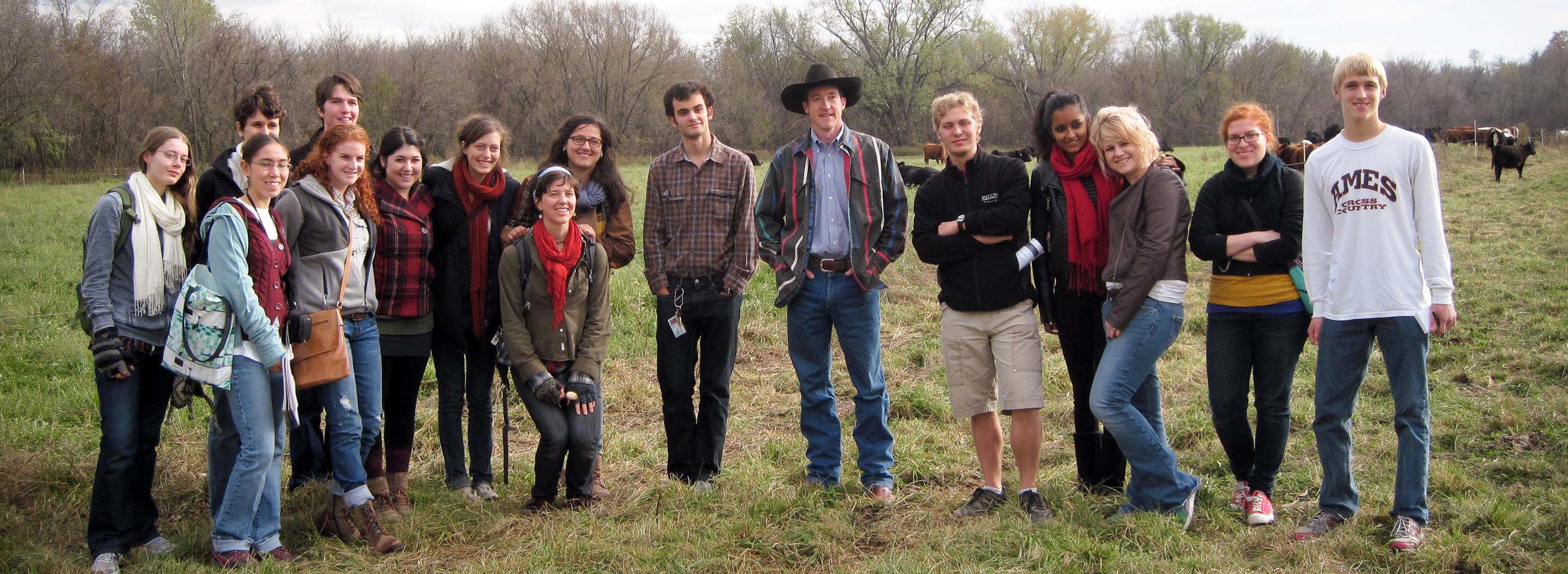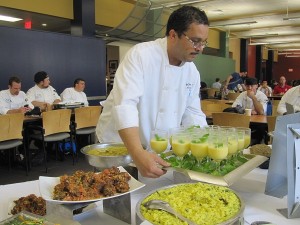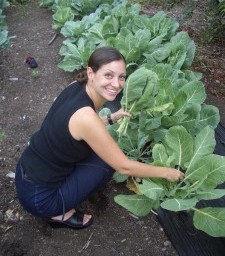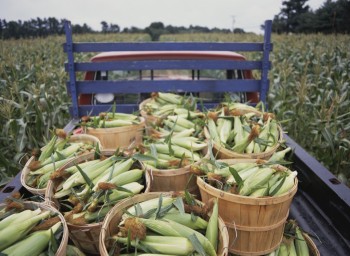CNBC interviewed Bon Appétit Management Company CEO Fedele Bauccio about what it’s been like feeding Silicon Valley for 25 years.

The Bon Appétit Blog
+ Blog Categories

Lessons Learned on the Turmeric Trail
- Blog
This summer, Bon Appétit chefs gathered around the country to learn the ins and outs of cooking authentic Indian cuisine. At Emmanuel College in Boston, I joined a group of New England chefs attending the culinary training, titled “Flavors from the Turmeric Trail” and given by Raghavan Iyer, a native of Mumbai and a celebrated chef, author, and teacher.
Bon Appétit Makes Top 10 List from Her Campus
- Blog
When it comes to food, students know what they like – and what they don’t. Long gone are the times where students would eat mystery meat, things covered in gravy, and canned vegetables. Thanks to Bon Appétit, they don’t have to.

The real question about local food
- Blog
“Which is better for the environment and the economy — a tomato grown nearby or one from the supermarket?” That’s how USA Today starts off a recent piece titled “Local food is trendy, but is it really more eco-friendly?,” discussing two new books that claim to debunk the idea that it is. This argument is a pretty moldy one — it’s been floating around since we launched the Eat Local Challenge, back in 2005 — and it surprises me that anyone still likes to take a bite of it.

From the Cob to Café: Freezing Super Sweet, Farm to Fork Corn
- Blog
Although farmers planted corn in record numbers this year — the most acres since 1937 — the current drought affecting the Midwest means yields are predicted to be well below last year’s. However, very little of the corn planted in the Midwest is edible: most of it goes to feed animals or for fuel. But there are farmers who grow against the grain, so to speak. Last year, when Bon Appétit District Manager Sam Currie discovered Hutterian Brethren Farms had a surplus of the sweetest corn he’d ever had, he jumped at the opportunity to find a way for our accounts to use it.

Recipe: Seasonal Melon Agua Fresca
- Blog
This agua fresca recipe makes use of any seasonal melons you may have on hand (try your local farmers’ market!) and includes much less added sugar than traditional agua fresca recipes to help you hydrate the healthy way.

Recipe: Peach Lassi Freeze
- Blog
This local, lighter take on an Indian classic will help you hydrate the healthy way this July.
Last Chance to Ask FDA to Regulate Antibiotics
- Blog
Among its many firsts, Bon Appétit Management Company was the first food service company to address the issue of antibiotic overuse in the meat supply. We don’t serve chicken, turkey, or hamburgers from animals that have been raised with the routine use of antibiotics in their feed or water, which is the default for most of the poultry, hog, and beef industries. CEO Fedele Bauccio, who served on the Pew Commission for Industrial Farm Animal Production, has several times briefed Congress and Capitol Hill staffers on why it’s urgent that the government safeguard these drugs that were developed to treat human illness. Yesterday, the Food and Environment Reporting Network‘s Maryn McKenna broke the story on ABC News that more than 8 million American women are at risk of recurrent bladder infections because of the overuse of antibiotics in animal agriculture. McKenna wrote […]

Recipe: Spiked Water
- Blog
Hydrate the healthy way this July with the below recipe for “spiked water” – many variations are possible, the recipe is just a guide!
The Story of Bon Appétit
- Blog
Bon Appétit Management Company was founded in 1987, by two food service industry veterans — CEO Fedele Bauccio and President Ernie Collins, later joined by COO Michael Bauccio — who had a vision of different kind of company. They set out to bring restaurant-quality food to corporations, universities, and specialty venues. Bon Appétit has become an industry pioneer in many other ways: the first to commit to local food, sustainable seafood, and cage-free eggs, and the first to tackled thorny issues such as food’s role in climate change, the reduction of antibiotics in agriculture, and farmworker rights. To celebrate our 25th anniversary, we worked with a great team at InHouse Creative Services to make this video about how we got here, and where we want to go next: The Story of Bon Appétit Management Company from Bon Appétit Management Company […]